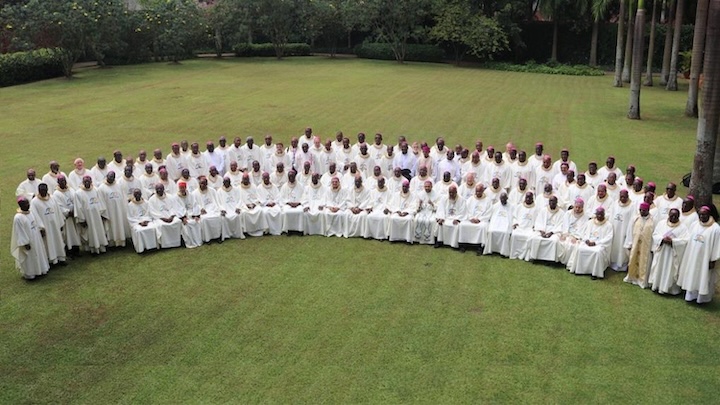On January 29, the Holy Father gave an interview with the Italian newspaper, La Stampa. Many of us cringe when we hear about another papal interview, since we’ve learned it’s rarely good news. And Pope Francis’ recent interview lived up to expectations.
We were told in Fiducia supplicans, which claimed to be crystal clear about permitting blessings of “irregular couples”: “beyond the guidance provided above, no further responses should be expected about possible ways to regulate details or practicalities regarding blessings of this type.” Yet it seems the Vatican can’t stop talking about that Declaration from the Dicastery on the Doctrine of the Faith. The papal interview was just one more of those supposedly unneeded responses. And, true to form, it has brought more frustration and division than peace and unity.
As I read the English text of the interview provided by Vatican News, I was surprised to learn that the opposition to Fiducia supplicans is only found among those in “small ideological groups.” Later, in an apparent reference to these groups, the pope said: “In the Church, there have always been small groups that manifest reflections of a schismatic nature.”
As a pastor and moral theologian, I’ve expressed my concerns in various settings about both the theological underpinnings of Fiducia Supplicans, as well as my opposition to its approval of blessings for couples in states of sin.
And so, I had to ask myself, do I belong to a “small ideological group” that manifests a “schismatic nature?”
The answer is “no.” I don’t belong to a small group that wants schism. I love the Church and believe in her Catholic and Apostolic faith, transmitted through Sacred Tradition and Sacred Scripture.
It’s this Catholic and Apostolic faith that the magisterium is supposed to interpret as its servant, in a posture of docility and reverence, as the opening of Vatican II’s Dei Verbum states: “Hearing the word of God with reverence and proclaiming it with faith. . . .this present council wishes to set forth authentic doctrine on divine revelation and how it is handed on, so that by hearing the message of salvation the whole world may believe, by believing it may hope, and by hoping it may love.”
In the interview, the Holy Father addressed African opposition to Fiducia supplicans, saying the African continent is “a special case,” since “for them, homosexuality is something ‘ugly’ from a cultural point of view; they do not tolerate it.”
When I read that, I felt a spiritual affinity and a unity in the Spirit with Africa.
Our shared Catechism of the Catholic Church still echoes the Church’s perennial moral teaching: “Basing itself on Sacred Scripture, which presents homosexual acts as acts of grave depravity, tradition has always declared that ‘homosexual acts are intrinsically disordered.’ They are contrary to the natural law. They close the sexual act to the gift of life. They do not proceed from a genuine affective and sexual complementarity. Under no circumstances can they be approved.” [No. 2357]

If being an African means being opposed to homosexual relationships, and seeing homosexual acts as “ugly,” since they offend the complementarity of man and woman and mock the selfless act of nuptial intimacy, and if being an African means not tolerating such relationships, and efforts to normalize them, especially in supposed “gay marriages” and other such ways, then I had to start asking myself some hard questions.
Since I’m not a part of a small ideological group seeking schism – and never would be – I realized for the first time in my almost fifty years: I’m an African! Spiritually, doctrinally, I’m an African.
“The unity of the Spirit in the bond of peace,” praised by Saint Paul (Ephesians 4:3), compels me to recognize my connection with the believers in Africa and my newly recognized status as a spiritual African.
Years ago, while I was a seminarian at the Pontifical North American College in Rome, I visited Nigeria.
One of the local archbishops, a friend of my home bishop, hosted me for a visit to his diocese. I saw there the strong and vibrant faith of the people, which was reflected in beautiful Masses, inspirational singing and prayers, the people’s love for their shepherds, the building of hospitals and churches literally by the hands of the faithful, and by an intense and warm sense of welcome and hospitality. I had never experienced anything like it. It was like walking into the Acts of the Apostles.
During my stay, the archbishop made time for me every evening to discuss what I had seen or learned that day. As my time in Nigeria was coming to a close, he asked me, “Jeffrey, why is God in Africa?” Honestly, I was confused by the question. My face must have shown my perplexity because the archbishop asked me again, “Jeffrey, why is God in Africa?” I finally had to respond, “I don’t know, Your Grace.”
The archbishop, who was an apostolic man of conspicuous faith and love, smiled at my answer. He then looked directly into my eyes and said, “Jeffrey, God is in Africa because God goes where He is wanted!”
Yes, God goes where He is wanted, and the believers of Africa want Him. They want Him as He has revealed Himself and exactly how as He has taught us to live as His children. There’s no equivocation, no compromise, no adulteration possible.
As a Catholic Christian, I want the same, as do tens of millions in the West and all over the world. And so, in a sense, we are all spiritually African, hardly “small ideological groups,” bound with the believers of Africa in our shared Catholic and Apostolic faith and greatly wanting God and yearning for Him to come where He is wanted – and to open all eyes and hearts still closed to Him.















